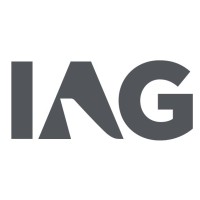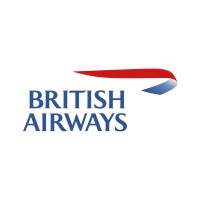Company Details
international-airlines-group-iag-
602
71,398
481
iairgroup.com
0
INT_1645470
In-progress

International Airlines Group (IAG) Company CyberSecurity Posture
iairgroup.comInternational Airlines Group (IAG) is one of the world’s largest airline groups with 600+ aircraft carrying more than 122 million customers to 260 destinations across 91 countries each year. Formed in January 2011, IAG is the parent company of Aer Lingus, British Airways, Iberia, Vueling and LEVEL. It is a Spanish registered company with shares traded on the London Stock Exchange and Spanish Stock Exchanges. The corporate head office for IAG is in London, UK. IAG combines leading airlines in the UK, Ireland and Spain, enabling them to enhance their presence in the aviation market while retaining their individual brands and current operations. The airlines' customers benefit from a larger combined network for both passengers and cargo, and a greater ability to invest in new products and services through improved financial robustness.
Company Details
international-airlines-group-iag-
602
71,398
481
iairgroup.com
0
INT_1645470
In-progress
Between 750 and 799

 IAG Global Score (TPRM)
IAG Global Score (TPRM)XXXX

Description: The California Office of the Attorney General reported a data breach involving British Airways Plc on November 21, 2018. The breach dates include October 21, 2018, September 5, 2018, April 21, 2018, and July 28, 2018. The breach involved the compromise of personal and financial information of customers, which could have significant consequences for the company and its customers.
Description: British Airways disclosed that the data breach experienced by the payroll service provider Zellis has an effect on them. The BBC and British Airways employees' personal information was exposed as a result of the cyberattack on the payroll service Zellis. According to reports, British Airways was one among the companies damaged by a cyber security attack against MOVEit's target, the UK-based payroll provider Zellis.
Description: The Washington State Office of the Attorney General reported a data breach involving British Airways PLC on November 21, 2018. The breach, which occurred from August 21, 2018 to September 5, 2018, was due to a cyberattack involving malware, potentially exposing the payment card and personal information of approximately 1,588 Washington residents.
Description: In 2018, British Airways suffered a **Magecart (e-skimming) attack** where attackers injected malicious JavaScript into its payment checkout page, exploiting a third-party script vulnerability. The breach went undetected for **two weeks**, during which **380,000 customers' payment card details** (including names, addresses, credit card numbers, CVV codes, and expiry dates) were harvested directly from the browser environment. The attack bypassed traditional security measures like WAFs and intrusion detection systems by operating entirely client-side, leveraging encrypted HTTPS traffic to exfiltrate data to attacker-controlled servers. The incident resulted in **regulatory fines (£20M by ICO)**, reputational damage, and a **class-action lawsuit** from affected customers. The breach highlighted critical gaps in monitoring dynamic client-side code and third-party script dependencies, which remained unaddressed despite robust server-side defenses. The financial and operational fallout extended beyond immediate fraud losses, impacting customer trust during peak travel seasons.
Description: Credit card details of hundreds of thousands of British Airways customers were stolen over a two-week period in the most serious attack on its website and app. It immediately contacted customers when the extent of the breach became clear. Around 380,000 card payments were compromised. Hackers obtained names, street and email addresses, credit card numbers, expiry dates and security codes. The attack came 15 months after the carrier suffered a massive computer system failure at London's Heathrow airport, which stranded 75,000 customers over a holiday weekend. The attackers had not broken the airline's encryption but did not explain exactly how they had obtained the customer information. The attackers had probably targeted a gateway between the airline and a payment processor because no travel details had been stolen. BA advised customers to contact their bank or credit card provider and follow their recommended advice.
Description: British Airways found a security bug which has the potential to expose passengers’ data, including their flight booking details and personal information. It was an attack that could expose victims’ booking reference numbers, phone numbers, email addresses and more. It was found that bad actors could either view the victim’s personal data, or manipulate their booking information. The exposed information includes email address, telephone numbers, BA membership numbers, first and last name, booking reference, itinerary, flight information like flight number, flight times, and seat number.


No incidents recorded for International Airlines Group (IAG) in 2025.
No incidents recorded for International Airlines Group (IAG) in 2025.
No incidents recorded for International Airlines Group (IAG) in 2025.
IAG cyber incidents detection timeline including parent company and subsidiaries

International Airlines Group (IAG) is one of the world’s largest airline groups with 600+ aircraft carrying more than 122 million customers to 260 destinations across 91 countries each year. Formed in January 2011, IAG is the parent company of Aer Lingus, British Airways, Iberia, Vueling and LEVEL. It is a Spanish registered company with shares traded on the London Stock Exchange and Spanish Stock Exchanges. The corporate head office for IAG is in London, UK. IAG combines leading airlines in the UK, Ireland and Spain, enabling them to enhance their presence in the aviation market while retaining their individual brands and current operations. The airlines' customers benefit from a larger combined network for both passengers and cargo, and a greater ability to invest in new products and services through improved financial robustness.


As a global airline and the UK’s flag carrier, British Airways has been flying its customers to where they need to be for more than 100 years. The airline connects Britain with the world and the world with Britain, operating one of the most extensive international scheduled airline route networks to

Welcome to the official Cathay Pacific LinkedIn page. We have over 200 destinations in our global network, but want to do more than just move you from A to B. We want to take you further in your journey, and ultimately, to move beyond. And we’re here to do what we can to help you discover what’s nex

As one of the three major air carriers in China, headquartered in Shanghai, China Eastern Airlines operates 111 domestic and overseas branches across the globe. Flying a fleet of 730 aircraft which is one of the youngest fleets in major airlines worldwide. Moreover, it boasts the largest-scale in-fl

Ethiopian Airlines Group (Ethiopian) is a true African success story, transforming a visionary dream into a globally renowned reality for nearly eight decades. Operating flights to more than 160 domestic and international passenger, and cargo destinations across five continents, Ethiopian bridges th

Depuis 1933, la compagnie Air France porte haut les couleurs de la France à travers le monde entier. Avec une activité, répartie entre le transport aérien de passagers, le fret, la maintenance et l’entretien aéronautique, Air France est un acteur majeur du secteur aérien. Plus de 45 000 collaborateu

Red. Hot. Spicy. That’s not just our tagline, it’s how we fly. Red reflects the bold spirit we bring to every journey, energetic, passionate, and full of heart. Hot captures the warmth of our service and the vibrant destinations we connect. Spicy is our drive to keep travel exciting through innovati
We’re creating an airline people love. It begins with each Alaska Airlines employee, bringing unique strengths and energy to our work in the air and on the ground. Every day, we go beyond what’s expected and reach for the remarkable, together. Welcome to our LinkedIn page. We like conversations on

We’re on a mission to make low-cost travel easy. Whatever your role, you’ll connect millions of people to what they love using Europe’s best airline network, great value fares, and friendly service. And to help us get there we’ll give you everything you need to make a personal impact on our growing
The Lufthansa Group is an aviation company with operations worldwide. It plays a leading role in its European home market. With 109,509 employees, the Lufthansa Group generated revenue of EUR 32.770m in the financial year 2022. The Passenger Airlines segment includes, on the one hand, the network a
.png)
International Consolidated Airlines Group (IAG) Today: Share Price, €1bn Buyback, Iberia Cyberattack and TAP Bid – 26 November 2025...
In the fast-paced world of aviation, where data flows as freely as jet streams, a single vulnerability can ground an entire operation.
Customers of Iberia Airlines will need to be on high alert for phishing attacks after the carrier revealed personal information had been...
Iberia warns customers of a supplier-related data breach as a threat actor claims to hold 77GB of stolen airline data.
Major ground stop: On Oct. 12, 2025 the FAA ordered a ground stop at Los Angeles International Airport (LAX) after an “equipment outage”...
Day 2 of the World Aviation Festival 2025 in Lisbon brought together some of the most influential voices in global aviation.
Stock Rallying on Strong Momentum: Palo Alto Networks (NASDAQ: PANW) traded around $216 per share on October 8, 2025, up roughly 3–4% over...
For many, the main point of investing in the stock market is to achieve spectacular returns. While the best companies...
The EU's cybersecurity agency has confirmed 'third party' involvement in the hack on the outsourced systems for check-ins and boarding.

Explore insights on cybersecurity incidents, risk posture, and Rankiteo's assessments.
The official website of International Airlines Group (IAG) is http://www.iairgroup.com/.
According to Rankiteo, International Airlines Group (IAG)’s AI-generated cybersecurity score is 798, reflecting their Fair security posture.
According to Rankiteo, International Airlines Group (IAG) currently holds 0 security badges, indicating that no recognized compliance certifications are currently verified for the organization.
According to Rankiteo, International Airlines Group (IAG) is not certified under SOC 2 Type 1.
According to Rankiteo, International Airlines Group (IAG) does not hold a SOC 2 Type 2 certification.
According to Rankiteo, International Airlines Group (IAG) is not listed as GDPR compliant.
According to Rankiteo, International Airlines Group (IAG) does not currently maintain PCI DSS compliance.
According to Rankiteo, International Airlines Group (IAG) is not compliant with HIPAA regulations.
According to Rankiteo,International Airlines Group (IAG) is not certified under ISO 27001, indicating the absence of a formally recognized information security management framework.
International Airlines Group (IAG) operates primarily in the Airlines and Aviation industry.
International Airlines Group (IAG) employs approximately 602 people worldwide.
International Airlines Group (IAG) presently has no subsidiaries across any sectors.
International Airlines Group (IAG)’s official LinkedIn profile has approximately 71,398 followers.
International Airlines Group (IAG) is classified under the NAICS code 481, which corresponds to Air Transportation.
Yes, International Airlines Group (IAG) has an official profile on Crunchbase, which can be accessed here: https://www.crunchbase.com/organization/international-airlines-group.
Yes, International Airlines Group (IAG) maintains an official LinkedIn profile, which is actively utilized for branding and talent engagement, which can be accessed here: https://www.linkedin.com/company/international-airlines-group-iag-.
As of November 27, 2025, Rankiteo reports that International Airlines Group (IAG) has experienced 6 cybersecurity incidents.
International Airlines Group (IAG) has an estimated 3,298 peer or competitor companies worldwide.
Incident Types: The types of cybersecurity incidents that have occurred include Data Leak, Breach and Cyber Attack.
Detection and Response: The company detects and responds to cybersecurity incidents through an communication strategy with immediately contacted customers when the extent of the breach became clear and advised them to contact their bank or credit card provider., and containment measures with recommended: deploy content security policy (csp) in report-only mode, containment measures with recommended: implement subresource integrity (sri) for third-party scripts, containment measures with recommended: isolate and remove malicious scripts, containment measures with recommended: disable compromised third-party integrations, and remediation measures with recommended: conduct comprehensive script audits, remediation measures with recommended: deploy client-side monitoring tools (e.g., rasp, web exposure management), remediation measures with recommended: enforce nonces for inline scripts instead of 'unsafe-inline', remediation measures with recommended: update pci dss 4.0.1 controls for client-side risks, and recovery measures with recommended: develop client-side incident playbooks, recovery measures with recommended: implement automated script inventory tools, recovery measures with recommended: enhance customer communication templates for breaches, and adaptive behavioral waf with recommended: supplement traditional wafs with client-side protection, and enhanced monitoring with recommended: real-time javascript execution monitoring..
Title: British Airways Data Breach
Description: Credit card details of hundreds of thousands of British Airways customers were stolen over a two-week period in the most serious attack on its website and app.
Type: Data Breach
Attack Vector: WebsiteMobile App
Vulnerability Exploited: Gateway between the airline and a payment processor
Motivation: Financial Gain
Title: British Airways Data Exposure Incident
Description: British Airways found a security bug which has the potential to expose passengers’ data, including their flight booking details and personal information. The exposed information includes email address, telephone numbers, BA membership numbers, first and last name, booking reference, itinerary, flight information like flight number, flight times, and seat number.
Type: Data Exposure
Attack Vector: View victim's personal dataManipulate booking information
Title: British Airways Data Breach via Zellis Payroll Service
Description: British Airways disclosed that the data breach experienced by the payroll service provider Zellis has an effect on them. The BBC and British Airways employees' personal information was exposed as a result of the cyberattack on the payroll service Zellis.
Type: Data Breach
Attack Vector: Cyberattack on payroll service provider
Title: British Airways Data Breach
Description: The California Office of the Attorney General reported a data breach involving British Airways Plc on November 21, 2018. The breach dates include October 21, 2018, September 5, 2018, April 21, 2018, and July 28, 2018.
Date Detected: 2018-11-21
Date Publicly Disclosed: 2018-11-21
Type: Data Breach
Title: British Airways Data Breach
Description: The Washington State Office of the Attorney General reported a data breach involving British Airways PLC on November 21, 2018. The breach, which occurred from August 21, 2018 to September 5, 2018, was due to a cyberattack involving malware, potentially exposing the payment card and personal information of approximately 1,588 Washington residents.
Date Detected: 2018-09-05
Date Publicly Disclosed: 2018-11-21
Type: Data Breach
Attack Vector: Malware
Title: 2024 Holiday Season Client-Side Attacks: Polyfill.io Breach and Cisco Magecart Incident
Description: The 2024 holiday season witnessed a surge in client-side attacks exploiting third-party JavaScript vulnerabilities, including the Polyfill.io supply chain breach (affecting 500,000+ websites) and the Cisco Magecart attack targeting holiday shoppers. These incidents highlighted critical visibility gaps in Web Application Firewalls (WAFs) and intrusion detection systems, which fail to monitor malicious JavaScript executing in users' browsers. Attackers leveraged encrypted traffic, dynamic script behavior, and shadow scripts to steal payment data undetected, with attacks increasing by 690% during peak shopping periods. Notable examples included the British Airways (2018) and Ticketmaster (2019) breaches, alongside 2024 incidents like the Kuwaiti e-commerce site Shrwaa.com and the Grelos skimmer variant deploying fake payment forms before Black Friday.
Date Publicly Disclosed: 2024-09-01
Type: Data Breach
Attack Vector: Compromised Third-Party JavaScript (Polyfill.io, chat widgets, analytics platforms)Shadow Scripts (unauthorized/dynamically loaded scripts)DOM Manipulation (fake payment forms)Session/Cookie HijackingEncrypted HTTPS Traffic ExfiltrationSupply Chain Compromise (vendor scripts)
Vulnerability Exploited: Lack of Content Security Policy (CSP) enforcementAbsence of Subresource Integrity (SRI) checksUnmonitored third-party script dependenciesInsufficient client-side runtime monitoringOver-reliance on server-side WAFs/IDS for client-side threatsPCI DSS 4.0.1 compliance gaps in client-side data protection
Motivation: Financial Gain (theft of payment card data during high-transaction holiday season)
Common Attack Types: The most common types of attacks the company has faced is Breach.
Identification of Attack Vectors: The company identifies the attack vectors used in incidents through Gateway between the airline and a payment processor, Compromised third-party scripts (e.g., Polyfill.io, chat widgets)Shadow scripts dynamically loaded without approvalVendor supply chain vulnerabilities (e.g. and customer support tools).

Data Compromised: Credit card numbers, Expiry dates, Security codes, Names, Street and email addresses
Systems Affected: WebsiteMobile App
Payment Information Risk: High

Data Compromised: Email address, Telephone numbers, Ba membership numbers, First and last name, Booking reference, Itinerary, Flight number, Flight times, Seat number

Data Compromised: Personal information of employees

Data Compromised: Payment card information, Personal information

Data Compromised: Payment card details (e.g., 380,000 records in british airways breach), Authentication tokens, Session cookies, Personally identifiable information (pii) from checkout forms
Systems Affected: E-commerce platforms (e.g., Cisco merchandise store, Shrwaa.com)Third-party scripts (Polyfill.io, chat widgets, analytics tools)User browsers (client-side execution environment)
Operational Impact: Disrupted holiday shopping operationsDevelopment freezes limiting patch deploymentIncreased SOC workload during peak season
Conversion Rate Impact: Potential drop due to fake payment forms and compromised checkout flows
Customer Complaints: Expected increase due to payment fraud and data theft
Brand Reputation Impact: High (eroded trust in e-commerce security during critical shopping period)
Legal Liabilities: Potential PCI DSS non-compliance finesRegulatory penalties for delayed breach disclosure
Identity Theft Risk: High (stolen payment data used for fraud)
Payment Information Risk: Critical (direct theft of card details from checkout pages)
Commonly Compromised Data Types: The types of data most commonly compromised in incidents are Credit Card Numbers, Expiry Dates, Security Codes, Names, Street And Email Addresses, , Email Address, Telephone Numbers, Ba Membership Numbers, First And Last Name, Booking Reference, Itinerary, Flight Number, Flight Times, Seat Number, , Personal Information, , Payment Card Information, Personal Information, , Payment Card Data (Card Numbers, Cvv, Expiry Dates), Authentication Tokens, Session Cookies, Pii From Checkout Forms (Names, Addresses, Emails) and .

Entity Name: British Airways
Entity Type: Company
Industry: Aviation
Location: United Kingdom
Customers Affected: 380000

Entity Name: British Airways
Entity Type: Company
Industry: Aviation

Entity Name: British Airways
Entity Type: Company
Industry: Aviation
Location: United Kingdom

Entity Name: BBC
Entity Type: Company
Industry: Media
Location: United Kingdom

Entity Name: British Airways Plc
Entity Type: Company
Industry: Aviation
Location: United Kingdom

Entity Name: British Airways PLC
Entity Type: Company
Industry: Aviation
Customers Affected: 1588

Entity Name: Polyfill.io
Entity Type: Third-Party Service Provider
Industry: Web Development Tools
Location: Global
Size: 500,000+ websites impacted

Entity Name: Cisco
Entity Type: Corporation
Industry: Technology/Networking
Location: Global
Size: Large Enterprise

Entity Name: British Airways
Entity Type: Airline
Industry: Travel
Location: United Kingdom
Size: Large Enterprise
Customers Affected: 380,000

Entity Name: Ticketmaster
Entity Type: Ticketing Platform
Industry: Entertainment
Location: Global
Size: Large Enterprise

Entity Name: Shrwaa.com
Entity Type: E-commerce
Industry: Retail
Location: Kuwait
Size: Small/Medium Business

Entity Name: Unspecified E-commerce Sites (Grelos skimmer targets)
Entity Type: E-commerce
Industry: Retail
Location: Global

Communication Strategy: Immediately contacted customers when the extent of the breach became clear and advised them to contact their bank or credit card provider.

Containment Measures: Recommended: Deploy Content Security Policy (CSP) in report-only modeRecommended: Implement Subresource Integrity (SRI) for third-party scriptsRecommended: Isolate and remove malicious scriptsRecommended: Disable compromised third-party integrations
Remediation Measures: Recommended: Conduct comprehensive script auditsRecommended: Deploy client-side monitoring tools (e.g., RASP, Web Exposure Management)Recommended: Enforce nonces for inline scripts instead of 'unsafe-inline'Recommended: Update PCI DSS 4.0.1 controls for client-side risks
Recovery Measures: Recommended: Develop client-side incident playbooksRecommended: Implement automated script inventory toolsRecommended: Enhance customer communication templates for breaches
Adaptive Behavioral WAF: Recommended: Supplement traditional WAFs with client-side protection
Enhanced Monitoring: Recommended: Real-time JavaScript execution monitoring

Type of Data Compromised: Credit card numbers, Expiry dates, Security codes, Names, Street and email addresses
Number of Records Exposed: 380000
Sensitivity of Data: High
Data Encryption: Unbroken
Personally Identifiable Information: NamesStreet and email addresses

Type of Data Compromised: Email address, Telephone numbers, Ba membership numbers, First and last name, Booking reference, Itinerary, Flight number, Flight times, Seat number
Personally Identifiable Information: email addresstelephone numbersBA membership numbersfirst and last name

Type of Data Compromised: Personal information

Type of Data Compromised: Payment card information, Personal information
Number of Records Exposed: 1588

Type of Data Compromised: Payment card data (card numbers, cvv, expiry dates), Authentication tokens, Session cookies, Pii from checkout forms (names, addresses, emails)
Number of Records Exposed: 380,000 (British Airways breach), 500,000+ websites (Polyfill.io supply chain), Unspecified (Cisco Magecart, Shrwaa.com, Grelos skimmer)
Sensitivity of Data: High (financial and personal data)
Data Exfiltration: Yes (to attacker-controlled servers via encrypted HTTPS)
Data Encryption: No (data stolen in plaintext from checkout forms)
Personally Identifiable Information: Yes (names, addresses, emails, payment details)
Prevention of Data Exfiltration: The company takes the following measures to prevent data exfiltration: Recommended: Conduct comprehensive script audits, Recommended: Deploy client-side monitoring tools (e.g., RASP, Web Exposure Management), Recommended: Enforce nonces for inline scripts instead of 'unsafe-inline', Recommended: Update PCI DSS 4.0.1 controls for client-side risks, .
Handling of PII Incidents: The company handles incidents involving personally identifiable information (PII) through by recommended: deploy content security policy (csp) in report-only mode, recommended: implement subresource integrity (sri) for third-party scripts, recommended: isolate and remove malicious scripts, recommended: disable compromised third-party integrations and .
Data Recovery from Ransomware: The company recovers data encrypted by ransomware through Recommended: Develop client-side incident playbooks, Recommended: Implement automated script inventory tools, Recommended: Enhance customer communication templates for breaches, .

Regulations Violated: PCI DSS 4.0.1 (client-side data protection requirements), Potential GDPR violations (for EU customer data),
Regulatory Notifications: Recommended: Mandatory disclosure under GDPR/PCI DSS for affected entities

Lessons Learned: Client-side attacks bypass traditional WAFs/IDS, requiring specialized monitoring., Third-party scripts introduce significant supply chain risk, especially during high-traffic periods., Encrypted traffic (HTTPS) obscures data exfiltration from client-side attacks., Development freezes during holidays delay patching, exacerbating vulnerabilities., Shadow scripts and dynamic code behavior evade static analysis tools., Compliance frameworks (e.g., PCI DSS 4.0.1) now emphasize client-side risks but lack prescriptive guidance.

Recommendations: Category: Compliance, Actions: Align with PCI DSS 4.0.1 client-side requirements., Document client-side risk assessments for auditors., Implement logging for client-side events to meet regulatory evidence needs., Category: Compliance, Actions: Align with PCI DSS 4.0.1 client-side requirements., Document client-side risk assessments for auditors., Implement logging for client-side events to meet regulatory evidence needs., Category: Compliance, Actions: Align with PCI DSS 4.0.1 client-side requirements., Document client-side risk assessments for auditors., Implement logging for client-side events to meet regulatory evidence needs., Category: Compliance, Actions: Align with PCI DSS 4.0.1 client-side requirements., Document client-side risk assessments for auditors., Implement logging for client-side events to meet regulatory evidence needs., Category: Compliance, Actions: Align with PCI DSS 4.0.1 client-side requirements., Document client-side risk assessments for auditors., Implement logging for client-side events to meet regulatory evidence needs..
Key Lessons Learned: The key lessons learned from past incidents are Client-side attacks bypass traditional WAFs/IDS, requiring specialized monitoring.,Third-party scripts introduce significant supply chain risk, especially during high-traffic periods.,Encrypted traffic (HTTPS) obscures data exfiltration from client-side attacks.,Development freezes during holidays delay patching, exacerbating vulnerabilities.,Shadow scripts and dynamic code behavior evade static analysis tools.,Compliance frameworks (e.g., PCI DSS 4.0.1) now emphasize client-side risks but lack prescriptive guidance.
Implemented Recommendations: The company has implemented the following recommendations to improve cybersecurity: Category: Incident Response, , Category: Compliance, , Category: Organizational, , Category: Detection & Monitoring, , Category: Preventive Measures and .

Source: California Office of the Attorney General
Date Accessed: 2018-11-21

Source: Washington State Office of the Attorney General
Date Accessed: 2018-11-21

Source: Cloudflare Holiday Season Traffic Report 2024

Source: British Airways Breach Post-Mortem (2018)

Source: Ticketmaster Customer Support Chat Breach Analysis (2019)

Source: Polyfill.io Supply Chain Attack Report (2024)

Source: Cisco Magecart Incident Disclosure (September 2024)

Source: PCI DSS 4.0.1 Client-Side Security Guidelines
Additional Resources: Stakeholders can find additional resources on cybersecurity best practices at and Source: California Office of the Attorney GeneralDate Accessed: 2018-11-21, and Source: Washington State Office of the Attorney GeneralDate Accessed: 2018-11-21, and Source: Cloudflare Holiday Season Traffic Report 2024, and Source: British Airways Breach Post-Mortem (2018), and Source: Ticketmaster Customer Support Chat Breach Analysis (2019), and Source: Polyfill.io Supply Chain Attack Report (2024), and Source: Cisco Magecart Incident Disclosure (September 2024), and Source: PCI DSS 4.0.1 Client-Side Security Guidelines.

Investigation Status: Ongoing (industry-wide analysis of 2024 holiday season attacks)
Communication of Investigation Status: The company communicates the status of incident investigations to stakeholders through Immediately contacted customers when the extent of the breach became clear and advised them to contact their bank or credit card provider..

Customer Advisories: Advised customers to contact their bank or credit card provider and follow their recommended advice.

Stakeholder Advisories: E-Commerce Platforms: Audit Third-Party Scripts Before Holiday Season., Payment Processors: Monitor For Fraud Spikes Linked To Client-Side Skimming., Regulators: Clarify Client-Side Protection Expectations In Pci Dss/Gdpr., Security Vendors: Develop Integrated Server-Side + Client-Side Monitoring Solutions..
Customer Advisories: Monitor payment card statements for unauthorized transactions.Use virtual cards or payment tokens for online holiday shopping.Report suspicious checkout behavior (e.g., unexpected redirects, additional form fields).Check browser extensions for malicious script injection risks.
Advisories Provided: The company provides the following advisories to stakeholders and customers following an incident: were Advised customers to contact their bank or credit card provider and follow their recommended advice., E-Commerce Platforms: Audit Third-Party Scripts Before Holiday Season., Payment Processors: Monitor For Fraud Spikes Linked To Client-Side Skimming., Regulators: Clarify Client-Side Protection Expectations In Pci Dss/Gdpr., Security Vendors: Develop Integrated Server-Side + Client-Side Monitoring Solutions., Monitor Payment Card Statements For Unauthorized Transactions., Use Virtual Cards Or Payment Tokens For Online Holiday Shopping., Report Suspicious Checkout Behavior (E.G., Unexpected Redirects, Additional Form Fields)., Check Browser Extensions For Malicious Script Injection Risks. and .

Entry Point: Gateway between the airline and a payment processor

Entry Point: Compromised Third-Party Scripts (E.G., Polyfill.Io, Chat Widgets), Shadow Scripts Dynamically Loaded Without Approval, Vendor Supply Chain Vulnerabilities (E.G., Customer Support Tools),
Reconnaissance Period: Varies (e.g., Polyfill.io attack began in February 2024, detected during holidays)
Backdoors Established: Yes (persistent malicious JavaScript on infected sites)
High Value Targets: E-Commerce Checkout Pages, Payment Processing Forms, Authentication Token Storage (Cookies/Localstorage),
Data Sold on Dark Web: E-Commerce Checkout Pages, Payment Processing Forms, Authentication Token Storage (Cookies/Localstorage),

Root Causes: Over-Reliance On Server-Side Security Controls (Wafs/Ids) For Client-Side Threats., Lack Of Visibility Into Third-Party Script Behavior And Dependencies., Absence Of Runtime Monitoring For Javascript Execution In Browsers., Insufficient Enforcement Of Csp/Sri Despite Availability Of Standards., Development Freezes Preventing Timely Patching During Peak Seasons., Compliance Frameworks Lagging Behind Client-Side Attack Evolution.,
Corrective Actions: Mandate Csp/Sri Implementation For All Web Properties., Integrate Client-Side Monitoring Into Soc Operations., Establish Third-Party Script Governance Programs With Risk Tiering., Automate Script Inventory And Change Detection., Update Incident Response Plans To Include Client-Side Breach Scenarios., Advocate For Clearer Regulatory Guidance On Client-Side Protections.,
Post-Incident Analysis Process: The company's process for conducting post-incident analysis is described as Recommended: Real-time JavaScript execution monitoring.
Corrective Actions Taken: The company has taken the following corrective actions based on post-incident analysis: Mandate Csp/Sri Implementation For All Web Properties., Integrate Client-Side Monitoring Into Soc Operations., Establish Third-Party Script Governance Programs With Risk Tiering., Automate Script Inventory And Change Detection., Update Incident Response Plans To Include Client-Side Breach Scenarios., Advocate For Clearer Regulatory Guidance On Client-Side Protections., .
Most Recent Incident Detected: The most recent incident detected was on 2018-11-21.
Most Recent Incident Publicly Disclosed: The most recent incident publicly disclosed was on 2024-09-01.
Most Significant Data Compromised: The most significant data compromised in an incident were Credit card numbers, Expiry dates, Security codes, Names, Street and email addresses, , email address, telephone numbers, BA membership numbers, first and last name, booking reference, itinerary, flight number, flight times, seat number, , Personal Information of Employees, , Payment card information, Personal information, , Payment card details (e.g., 380,000 records in British Airways breach), Authentication tokens, Session cookies, Personally Identifiable Information (PII) from checkout forms and .
Most Significant System Affected: The most significant system affected in an incident were WebsiteMobile App and E-commerce platforms (e.g., Cisco merchandise store, Shrwaa.com)Third-party scripts (Polyfill.io, chat widgets, analytics tools)User browsers (client-side execution environment).
Containment Measures in Most Recent Incident: The containment measures taken in the most recent incident was Recommended: Deploy Content Security Policy (CSP) in report-only modeRecommended: Implement Subresource Integrity (SRI) for third-party scriptsRecommended: Isolate and remove malicious scriptsRecommended: Disable compromised third-party integrations.
Most Sensitive Data Compromised: The most sensitive data compromised in a breach were Payment card information, Payment card details (e.g., 380,000 records in British Airways breach), Personal Information of Employees, Street and email addresses, flight number, Personal information, Expiry dates, BA membership numbers, Session cookies, itinerary, Security codes, Authentication tokens, email address, booking reference, Personally Identifiable Information (PII) from checkout forms, Names, seat number, first and last name, Credit card numbers, flight times and telephone numbers.
Number of Records Exposed in Most Significant Breach: The number of records exposed in the most significant breach was 880.5K.
Most Significant Lesson Learned: The most significant lesson learned from past incidents was Compliance frameworks (e.g., PCI DSS 4.0.1) now emphasize client-side risks but lack prescriptive guidance.
Most Significant Recommendation Implemented: The most significant recommendation implemented to improve cybersecurity was Category: Incident Response, , Category: Compliance, , Category: Organizational, , Category: Detection & Monitoring, , Category: Preventive Measures and .
Most Recent Source: The most recent source of information about an incident are PCI DSS 4.0.1 Client-Side Security Guidelines, Polyfill.io Supply Chain Attack Report (2024), Ticketmaster Customer Support Chat Breach Analysis (2019), Cloudflare Holiday Season Traffic Report 2024, California Office of the Attorney General, British Airways Breach Post-Mortem (2018), Cisco Magecart Incident Disclosure (September 2024) and Washington State Office of the Attorney General.
Current Status of Most Recent Investigation: The current status of the most recent investigation is Ongoing (industry-wide analysis of 2024 holiday season attacks).
Most Recent Stakeholder Advisory: The most recent stakeholder advisory issued was E-commerce platforms: Audit third-party scripts before holiday season., Payment processors: Monitor for fraud spikes linked to client-side skimming., Regulators: Clarify client-side protection expectations in PCI DSS/GDPR., Security vendors: Develop integrated server-side + client-side monitoring solutions., .
Most Recent Customer Advisory: The most recent customer advisory issued were an Advised customers to contact their bank or credit card provider and follow their recommended advice., Monitor payment card statements for unauthorized transactions.Use virtual cards or payment tokens for online holiday shopping.Report suspicious checkout behavior (e.g., unexpected redirects and additional form fields).Check browser extensions for malicious script injection risks.
Most Recent Entry Point: The most recent entry point used by an initial access broker was an Gateway between the airline and a payment processor.
Most Recent Reconnaissance Period: The most recent reconnaissance period for an incident was Varies (e.g., Polyfill.io attack began in February 2024, detected during holidays).
.png)
Angular is a development platform for building mobile and desktop web applications using TypeScript/JavaScript and other languages. Prior to versions 19.2.16, 20.3.14, and 21.0.1, there is a XSRF token leakage via protocol-relative URLs in angular HTTP clients. The vulnerability is a Credential Leak by App Logic that leads to the unauthorized disclosure of the Cross-Site Request Forgery (XSRF) token to an attacker-controlled domain. Angular's HttpClient has a built-in XSRF protection mechanism that works by checking if a request URL starts with a protocol (http:// or https://) to determine if it is cross-origin. If the URL starts with protocol-relative URL (//), it is incorrectly treated as a same-origin request, and the XSRF token is automatically added to the X-XSRF-TOKEN header. This issue has been patched in versions 19.2.16, 20.3.14, and 21.0.1. A workaround for this issue involves avoiding using protocol-relative URLs (URLs starting with //) in HttpClient requests. All backend communication URLs should be hardcoded as relative paths (starting with a single /) or fully qualified, trusted absolute URLs.
Forge (also called `node-forge`) is a native implementation of Transport Layer Security in JavaScript. An Uncontrolled Recursion vulnerability in node-forge versions 1.3.1 and below enables remote, unauthenticated attackers to craft deep ASN.1 structures that trigger unbounded recursive parsing. This leads to a Denial-of-Service (DoS) via stack exhaustion when parsing untrusted DER inputs. This issue has been patched in version 1.3.2.
Forge (also called `node-forge`) is a native implementation of Transport Layer Security in JavaScript. An Integer Overflow vulnerability in node-forge versions 1.3.1 and below enables remote, unauthenticated attackers to craft ASN.1 structures containing OIDs with oversized arcs. These arcs may be decoded as smaller, trusted OIDs due to 32-bit bitwise truncation, enabling the bypass of downstream OID-based security decisions. This issue has been patched in version 1.3.2.
Suricata is a network IDS, IPS and NSM engine developed by the OISF (Open Information Security Foundation) and the Suricata community. Prior to versions 7.0.13 and 8.0.2, working with large buffers in Lua scripts can lead to a stack overflow. Users of Lua rules and output scripts may be affected when working with large buffers. This includes a rule passing a large buffer to a Lua script. This issue has been patched in versions 7.0.13 and 8.0.2. A workaround for this issue involves disabling Lua rules and output scripts, or making sure limits, such as stream.depth.reassembly and HTTP response body limits (response-body-limit), are set to less than half the stack size.
Suricata is a network IDS, IPS and NSM engine developed by the OISF (Open Information Security Foundation) and the Suricata community. In versions from 8.0.0 to before 8.0.2, a NULL dereference can occur when the entropy keyword is used in conjunction with base64_data. This issue has been patched in version 8.0.2. A workaround involves disabling rules that use entropy in conjunction with base64_data.

Get company history
















Every week, Rankiteo analyzes billions of signals to give organizations a sharper, faster view of emerging risks. With deeper, more actionable intelligence at their fingertips, security teams can outpace threat actors, respond instantly to Zero-Day attacks, and dramatically shrink their risk exposure window.
Identify exposed access points, detect misconfigured SSL certificates, and uncover vulnerabilities across the network infrastructure.
Gain visibility into the software components used within an organization to detect vulnerabilities, manage risk, and ensure supply chain security.
Monitor and manage all IT assets and their configurations to ensure accurate, real-time visibility across the company's technology environment.
Leverage real-time insights on active threats, malware campaigns, and emerging vulnerabilities to proactively defend against evolving cyberattacks.




